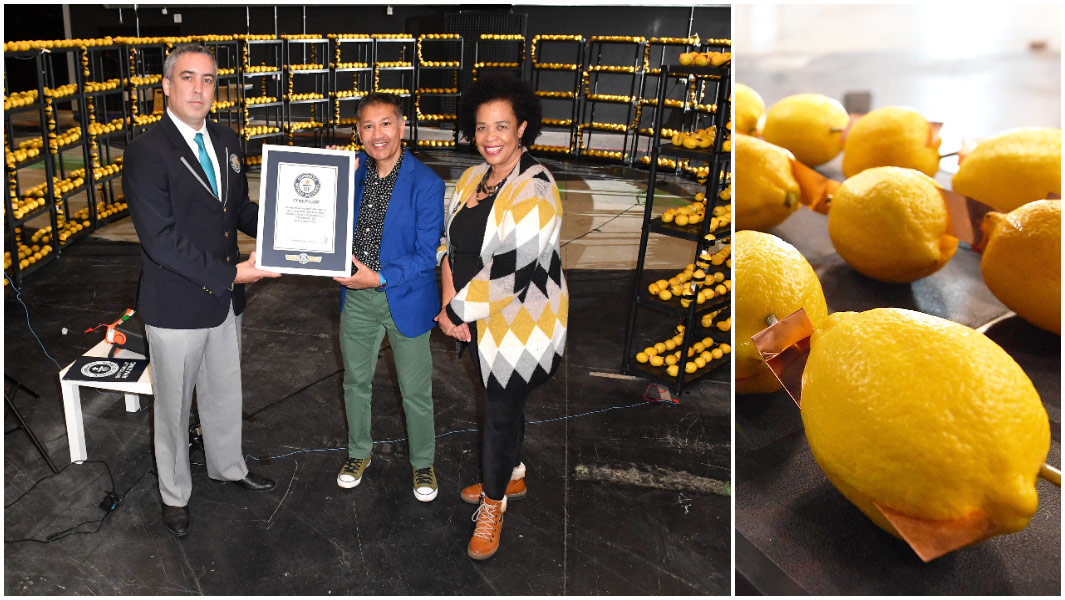Fruit battery made from 2,923 lemons breaks electrifying record

The Royal School of Chemistry (RCS) has shown that when life gives you lemons, you make a battery.
Specifically, 2,923 lemons were used to generate an electrifying 2,307.8 volts, breaking the record for the highest voltage from a fruit battery on 15th October 2021.
RCS is an international organization that connects thousands of scientists together, recognizing and celebrating advances in chemistry.
The record attempt took place in Manchester and was broadcast on Sky News to highlight the importance of energy storage and address the need for new innovations to achieve a zero-carbon world.
With the help of battery expert Professor Saiful Islam and science presenter Fran Scott, lemons were turned into batteries by cutting the lemon in half and attaching strips of zinc and copper to both ends.

As Professor Islam explains, the lemon becomes a battery with "the lemon juice [acting as] an electrolyte [while] zinc and copper are the electrodes".
Going further, the lemon juice (electrolyte) allows the ions to flow from the strip of zinc to the strip of copper.
To verify the attempt, the lemons were placed together on shelves and attached to a voltmeter to determine the exact voltage.

After the voltmeter was turned on, the voltage from the lemons totaled up to 2,307.8 volts, breaking the previous record by 1,521 volts.
"It was very exciting to regain our Guinness World Records title by squeezing the highest voltage from a fruit battery" - Professor Saiful Islam, chemist, and professor of Material Science at the University of Bath
However, the experiment did not end there! In collaboration with The Blair Project, Professor Islam took it one step further and attempted to power a go-kart race.
While the lemon battery wasn’t powerful enough to power the go-karts itself, it was able to activate a LED attached to a light sensor triggering a relay, and activating the pyrotechnic system needed to fire off the go-kart race.

Lowering carbon energy and tackling the effects of the climate crisis is one of the greatest challenges of our time and batteries play a vital role in reducing carbon emissions.
According to RSC research, 81% of young people in the UK think that climate change should be taught in schools, with 74% actively looking for ways to combat it.
Following the record attempt, the used lemons were processed by Refood in Widnes, who generate renewable energy from food waste. This new energy is then pumped directly into the National Gas Grid.
Any remaining liquid was transformed into a bio-fertilizer for local farming and agricultural use.
Have an important cause that can be boosted with the power of record-breaking? Visit our Business Solutions page to find out how we can help your brand or contact us.


